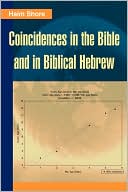New Testament History
God's authoritative message in the New Testament is applicable in every age and is best understood when studied in relation to its historical context. Richard L. Niswonger presents the major events of the life and ministry of Jesus, the missionary work of Paul, and the building of the apostolic church. He does this by introducing the reader to the historical, religious, and political setting of the New Testament and recounting the events with simplicity and directness. The book has more than...
Search in google:
Richard L. Niswonger presents the major events of the life and ministry of Jesus, the missionary work of Paul, and the building of the apostolic church. He does this by introducing the reader to the historical, religious, and political settings of the New Testament and recounting the events with simplicity and directness.
New Testament History\ \ By Richard Niswonger \ Zondervan\ Copyright © 1992 Zondervan\ All right reserved.\ ISBN: 0-310-31201-9 \ \ \ \ Chapter One\ Palestine and the Nations, 332-40 B.C.\ Alexander's Conquests\ When Jesus was born in Bethlehem, Rome had already dominated the land of his birthplace for nearly six decades. Roman forces continued their effort to pacify and stabilize this troublesome outpost of empire well beyond the era of New Testament history. In the centuries preceding Roman rule the Jewish people experienced a varied political history. It was the Persian Empire under Cyrus that granted permission (in 536 B.C.) to the first band of Jewish pilgrims to end their exile and begin their journey to the homeland. The Persians earned a reputation as beneficent rulers. Much like the later Romans, they believed a degree of magnanimity, respect for local customs, and a tolerance for varied ethnic and religious traditions would better cement a polyglot empire together than a policy of brute force and repression. The Persian era of control over Palestine ended suddenly with the conquests of the ruler of Macedon, Alexander the Great.\ The advent of the Macedonian conqueror would signify much more to the Jewish people than a simple exchange of political masters. The young general and his successors brought Greek culture and language to the Near East. The collision of new ways with the varied patterns of life existing in the Near East produced a new amalgam of cultures-Hellenism. Pious Jews perceived in this blend of oriental and Greek ideas a threat to their cherished faith and way of life. Alexander was not a son of Hellas himself, and the Greeks looked askance at his homeland, Macedonia, as culturally inferior. Nevertheless, Macedonia, and Alexander in particular, drank deeply at the well of Greek learning and literature. When the young prince reached thirteen, Aristotle personally tutored him and apparently had a major role in stimulating Alexander in his lifelong zeal for poetry, philosophy, ethics, science, and literature. During Alexander's military adventures in Asia Minor, he kept Homer's Iliad close by so that he might find time for reading and comparing his own exploits to those of earlier conquerors. But it required more than a brilliant mind to disseminate the Greek way of life to the East; it also necessitated a military genius who could subdue vast regions, and Alexander was capable of fulfilling both prerequisites.\ When Alexander was twenty years old, he assumed the throne of Macedonia in 336 B.C., after the assassination of his father, Philip II. his father. Although Philip had already subdued the Greek city states, Alexander reasserted the dominance of Macedonia by brutally crushing a revolt in the Greek city of Thebes. After leveling the rebel city and enslaving its citizens, Alexander turned his vision eastward toward the empire of Persia. With 35,000 soldiers he crossed the Hellespont in 334 B.C. and overcame the Persian defenders at Granicus. He led his army through the Cilician gates to Tarsus and won another strategic victory at Issus. Darius the Persian emperor fled in haste, abandoning his bath tub and harem to the Macedonians.\ Alexander chose to lead his troops directly south toward Egypt instead of pursuing Darius. Along the Palestinian coast, Tyre and Gaza fell after fierce resistance. The Jewish historian Josephus, who lived in the first century A.D. and is an important source for New Testament history, records an intriguing story of a meeting between the Jewish high priest Jaddua and Alexander. According to Josephus, Jaddua had spurned Alexander's call for submission and reaffirmed his loyalty to Darius. When news of Alexander's army marching from Gaza to Jerusalem came to Jaddua, he joined the people in making sacrifice and praying to Jehovah for deliverance. God's answer came to Jaddua in a dream. He must open the city gates and welcome the Macedonians. When the army drew near Jerusalem, the high priest had already led a welcoming party out of the city to beseech Alexander's mercy. After the two leaders met, Alexander surprised his comrades by revealing that in Macedonia he had seen a vision of this same high priest. In his dream, the God whose name Jaddua wore on his forehead had challenged him to take up arms and subdue Persia. The Macedonian general followed the high priest back to Jerusalem, offered sacrifice in the temple, and listened to the prophecies of Daniel that had foretold his victories. Most historians dismiss this story as legend. Josephus stands as the only witness, and a late one, to the event. But Alexander often did show respect to local religious shrines for political reasons and could have offered a sacrifice in Jerusalem. Although Josephus' story may reflect some exaggeration, it is likely that an encounter between Alexander and the high priest did occur.\ Continuing southward, Alexander took Egypt without a struggle. The priests of Amon acknowledged him as the son of God. Although divinity was one of the perquisites of office for the Pharaohs, Alexander did not utilize this new-found status as a device to unify his growing empire. He established no empire-wide cult. But he did later seek deification in Greece as a political device to pull that disunified peninsula together. The use of the "emperor worship" cult by Domitian and other Roman emperors as a stabilizing force was not the invention of the Macedonian. Alexander founded the city of Alexandria, one of many with that name, in the Nile Delta in 332 B.C. During the New Testament era this city was second only to Rome in population. Because of the large influx of Jews, it became an influential center for Jewish studies. Leaving Egypt, Alexander pursued Darius across Syria and Persia. But the harried Persian met death at the hands of one of his own supporters. With Persia vanquished, Alexander led his armies eastward as far as the Indus River. He would have driven his weary men farther into India had they not rebelled at the thought of continuing the long struggle. Returning to Persia, Alexander began to adopt the high style and pageantry of the oriental despots. But before he could create a unified empire out of his conglomeration of lands and peoples he died suddenly in 323 B.C.\ With Alexander's death, the empire disintegrated, and the fallen leader's generals contested with one another to inherit the largest slice of territory. The decades after 323 B.C. were marked by confusion and rivalry. Territories shifted from one contender to another. At one point four generals played the major role in the struggle, but eventually three major empires emerged. Ptolemy I Soter established himself as king of Egypt in 305 B.C. Another general, Seleucus, won Babylon and Syria. Antigonus, king of Phrygia, sought to create an empire for himself out of part of Alexander's domain in Macedonia and Asia Minor.\ Ptolemaic Domination of Palestine\ Palestine first fell into the Egyptian camp when Ptolemy I seized power there in 320 B.C., but Antigonus contested the Egyptian rule with armed force, and Ptolemy did not regain full control of Palestine until 301 B.C. During the course of the third century B.C. the Ptolemies dominated the region and brought an era of relative stability and peace. They permitted the high priest in Jerusalem to exercise some political power as well as religious power, and the Jews seemed to generally accept the rule of their Greek overlords.\ Ptolemy I established the famous library of Alexandria, which played a major role in hellenizing the culture of the Near East. He also began resettling Jews in Alexandria, a process that would continue beyond his day. These Jews of the Dispersion (or Diaspora) learned the Greek language and adopted much of the Greek culture of their new city. Before Christ's birth Alexandria had a large Hellenistic Jewish population, which occupied its own area in the Greek City.\ (Continues...)\ \ \ \ \ Excerpted from New Testament History by Richard Niswonger Copyright © 1992 by Zondervan. Excerpted by permission.\ All rights reserved. No part of this excerpt may be reproduced or reprinted without permission in writing from the publisher.\ Excerpts are provided by Dial-A-Book Inc. solely for the personal use of visitors to this web site. \ \
http://zondervan.com/media/samples/pdf/0310312019_samptoc.pdf







